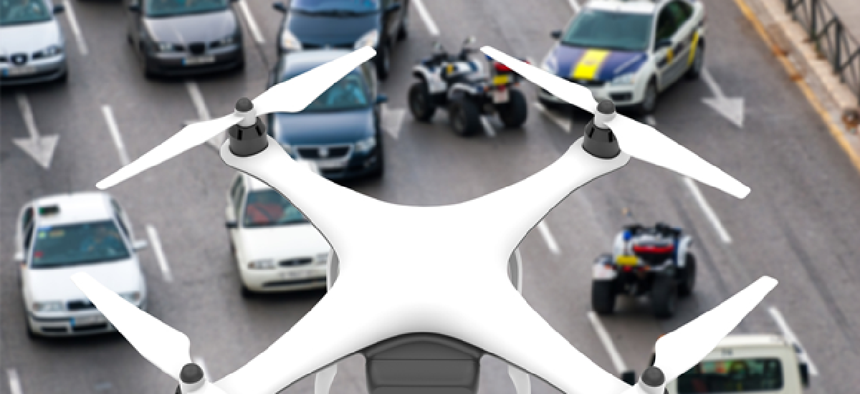DJI disputes claims of lax security, touts Government Edition drone

The Chinese manufacturer's Government Edition platform was created specifically for use by government agencies requiring advanced security.
In response to criticism of its data security policies at a recent Senate hearing on the security of unmanned aerial vehicles, Chinese drone manufacturer DJI called some witness claims "inaccurate" and "unsubstantiated" in a June 24 letter to the leadership of the Transportation Subcommittee of the Senate Commerce Committee.
During the hearing, Harry Wingo of National Defense University was particularly critical of DJI. He said the company has a "near monopoly" on drone technology marketed in the U.S. That technology isn't just in the gears and rotors, but also in the image collection and storage systems. He said American geospatial information is transmitted to Chinese data centers at an unprecedented level. "DJI says that American data is safe, but its use of proprietary software networks means how would we know."
In his letter, Mario Rebello, vice president and regional manager, of DJI Technology North America called that speculation "simply wrong." He said DJI drones "do not share flight logs, photos or videos unless the drone pilot deliberately chooses to do so." That data, he said, stays onboard the aircraft or the pilot's mobile device. "DJI cannot share customer data it never receives," he said.
To drive the point home, Rebello described the company's new "Government Edition" drone system whose hardware and software controls create a "data firewall for the photos, videos and flight logs created by a drone." Government Edition drones and their remote controllers can only be linked with each other and are not compatible with other DJI products, which prevents unauthorized access. The system also allows agencies to review firmware updates before applying them and to control how to validate updates and when to install them.
Rebello said the package was developed with input from the Department of the Interior's Office of Aviation Services. The letter cited the agency's 2018 UAS program use report, saying the technology passed two phases of testing to “meet Interior’s UAS data management and risk mitigation requirements with respect to encrypted control and payload links, and enterprise level managed data sharing controls.”
Lawmakers on the Senate panel were concerned Chinese and other foreign manufacturers had a jump on U.S. makers on the lower-end, mass-market, more affordable drone market.
To address some of these concerns and ensure its drones meet the requirements of the Trade Agreement Act that restricts government agencies from buying some products made in some countries, the company is opening an assembly facility in Cerritos, Calif., according to a report in the New York Times. The drones assembled in California, which can carry more powerful cameras and other equipment, are meant for emergency responders and industrial inspections.
A version of this article was first posted to FCW, a sibling site to GCN.





